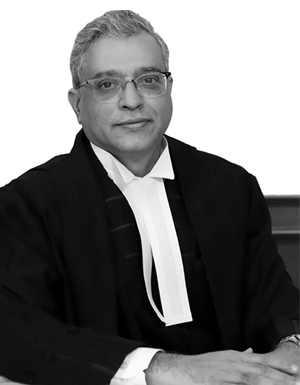
Meet Justice Pamidighantam Sri Narasimha and his Notable judicial decisions
Justice Pamidighantam Sri Narasimha, born on May 3, 1963, in Hyderabad, is a sitting judge of the Supreme Court of India and is in line to become Chief Justice in 2027 if the convention of seniority is followed. He holds degrees in Economics, Political Science, and Public Administration from Nizam College, Hyderabad, and completed his law degree at Delhi University in 1988. Justice Narasimha’s legal career began at the Andhra Pradesh High Court, after which he moved to the Supreme Court, gaining recognition for his expertise in constitutional, administrative, environmental, telecom, competition, and regulatory law.
He was designated a Senior Advocate in 2008 and served as Additional Solicitor General of India from 2014 to 2018, where he assisted the Court in several landmark cases, including the National Judicial Appointments Commission (NJAC) case before the Constitution Bench. Justice Narasimha also represented India at international forums such as the International Tribunal for the Law of the Sea (ITLOS) and the Permanent Court of Arbitration (PCA), and played a key role in legal reforms related to arbitration and mediation.
Landmark Judgements and Contributions
Justice PS Narasimha, sitting judge of the Supreme Court of India
Justice PS Narasimha, sitting judge of the Supreme Court of India
Ayodhya Title Dispute:
Justice Narasimha is best known for his pivotal role as a senior advocate in the historic Ayodhya land dispute case (M. Siddiq (Ram Janmabhumi Temple) v. Suresh Das, 2020). His arguments focused on the continuous and sincere belief of Hindus that the disputed site was the birthplace of Lord Ram, emphasizing the evidentiary standard of the “preponderance of probability.” His submissions contributed significantly to the Supreme Court’s unanimous verdict, which resolved a decades-long conflict and enabled the construction of the Ram Temple.
BCCI Reforms:
He served as amicus curiae and later as mediator in the Board of Control for Cricket in India (BCCI) cases. Justice Narasimha mediated disputes between the BCCI and its stakeholders, facilitating the conduct of elections and the formation of a new governing body, which brought transparency and accountability to Indian cricket administration.
NJAC Case:
As Additional Solicitor General, Justice Narasimha assisted the Supreme Court in the constitutional challenge to the NJAC, a case that reaffirmed the collegium system for judicial appointments and had a lasting impact on judicial independence in India.
Legal Reforms and Public Service:
Justice Narasimha has been instrumental in shaping reforms in arbitration law, mediation, and the restructuring of appellate tribunals. He has also contributed to the National Legal Services Authority (NALSA) and the Mediation and Conciliation Project Committee, promoting access to justice and alternative dispute resolution mechanisms.
Justice Narasimha’s career is marked by a commitment to constitutional values, institutional reform, and the evolution of Indian jurisprudence, making him a highly respected figure in the judiciary.












comments